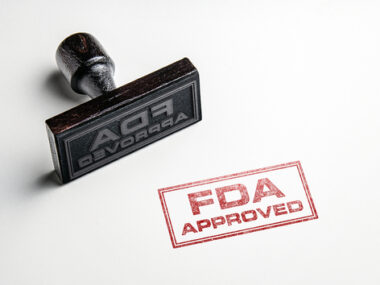FDA Approves Generic Version of Symbicort for COPD, Asthma
Written by |

The U.S. Food and Drug Administration (FDA) has approved the first generic equivalent to AstraZeneca’s Symbicort (budesonide and formoterol fumarate dihydrate) as a maintenance treatment for chronic obstructive pulmonary disease (COPD).
The generic, produced by Mylan Pharmaceuticals now part of Viatris, will be available as a metered-dose inhaler. It is intended to reduce exacerbations — episodes of sudden symptom worsening — in people with COPD, including chronic bronchitis and/or emphysema.
The new generic is also indicated for the treatment of asthma in people 6 and older. However, it is not indicated for the treatment of acute asthma attacks.
“Today’s approval of the first generic for one of the most commonly prescribed complex drug-device combination products to treat asthma and COPD is another step forward in our commitment to bring generic copies of complex drugs to the market, which can improve quality of life and help reduce the cost of treatment,” Sally Choe, PhD, director of the Office of Generic Drugs in the FDA’s Center for Drug Evaluation and Research, said in a press release.
Generics contain the exact same active agent as brand-name medications but are marketed at lower costs.
“This reflects the FDA’s continued efforts to increase competition and access to quality, safe, effective and affordable medicines for patients and consumers,” Choe said.
Like Symbicort, this generic contains a combination of an inhaled corticosteroid (budesonide) and a long-acting bronchodilator (formoterol). Budesonide helps reduce inflammation, while formoterol relaxes and opens the lung airways, making breathing easier.
Like the brand-name medicine, the generic should be given twice daily (two inhalations, 12 hours apart), to prevent asthma-associated symptoms or improving breathing in COPD patients. It is available in two dose strengths, one containing 160 mcg of budesonide and 4.5 mcg of formoterol, and another containing 80 mcg of budesonide and 4.5 mcg of formoterol.
The most common side effects of the medication include swelling of nasal passages and throat irritation following inhaler use, as well as headache, stomach discomfort, vomiting, cold and flu-like symptoms, and back pain.
Patients are advised to always rinse their mouth with water after using the inhaler to prevent the risk of thrush, a fungal infection of the mouth or throat. A doctor should be notified if white patches appear in the mouth or throat as they are potential signs of thrush.






